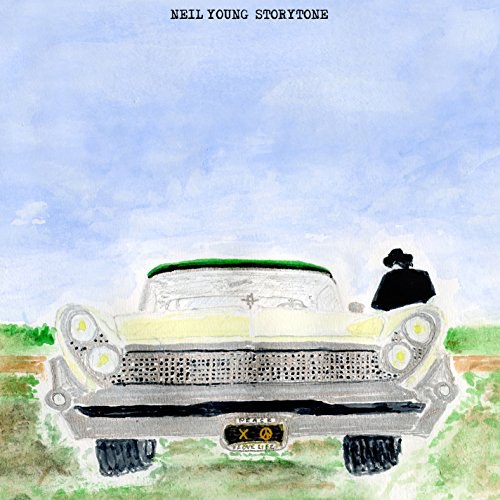故事声调
豆瓣
简介
Neil Young's significantly higher fidelity follow-up to A Letter Home is called Storytone, and it's out in November 4 via Reprise. (Pre viously, the album was titled Storeytone, but the first "e" has been dropped.) After sharing his orchestral, full band, and acoustic versions of the pro-environment song "Who's Gonna Stand Up?", he's shared more details about the album.
Really, it's two albums: There's a solo version and a "standard" version, which was recorded with a 92-piece orchestra and choir. The regular CD comes with the standard version, while a deluxe edition includes both the standard and solo versions. The vinyl contains both solo and standard versions, and will be out December 16. (Of course, the album will also be available via Pono, Young's crowd-sourced music player.)
The album was produced by Young and Niko Bolas under their Volume Dealers moniker. The orchestra was arranged and conducted by Michael Bearden and Chris Walden.
One of Neil Young's recent records, 2009's Fork In The Road, contains nothing but rambling songs about his beloved electric car. Young has generated stacks of live albums — one of which, 1991's Arc, consists of exactly 35 minutes' worth of feedback and noise. Whether he's recording front-porch ballads, anthemic rock, early archival tapes, scathing protest music or even a rock opera, Young has become one of the most uncompromising, unpredictable, unbound and, at times, unearthly brilliant living musicians.
Storytone, then, is exactly the sort of odd detour that fits neatly into Young's catalog: He recorded all of its 10 songs with either a 92-piece orchestra or an elaborate big band (not to mention the occasional choir), for a sound that couldn't be farther from the raggedness exemplified in his acoustic and electric recordings alike. Coming from a singer who derives so much of his power from the nervy, earnest brittleness of his voice, these arrangements sacrifice intimacy in the name of beauty, in ways that don't always suit the compositions at their core.
Take "Who's Gonna Stand Up," Storytone's first single. A blunt-force environmentalist protest song — "End fracking now," Young demands at one point — it needs a leavening agent rather than the weight of portentous orchestration. But, as if to demonstrate that point, Young smartly includes two versions of every song on Storytone, one with a lavish arrangement and one with a far sparer acoustic sound. In "Who's Gonna Stand Up," the contrast is as sharp as the difference between a heartfelt letter to the editor and the sermon on the mount.
Elsewhere, the songs work both ways: "I Want To Drive My Car," for example, has a bluesy stomp as its backbone, and works equally well as a quietly barren confession and a more full-blooded rock track. When Young explores quieter romantic themes during tiny love songs late in Storytone — don't miss the beautiful pairing of "I'm Glad I Found You" and "When I Watch You Sleeping" on both versions — the songwriting is strong enough, and the sentiment powerful enough, to support any arrangement.
tracks
01 Plastic Flowers
02 Who's Gonna Stand Up?
03 I Want To Drive My Car
04 Glimmer
05 Say Hello To Chicago
06 Tumbleweed
07 Like You Used To Do
08 I'm Glad I Found You
09 When I Watch You Sleeping
10 All Those Dreams